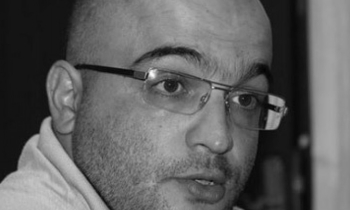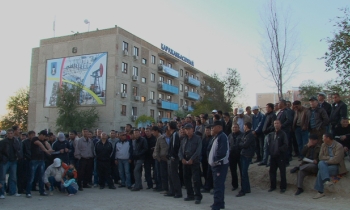The Canadian Journalists for Free Expression (CJFE) has expressed concern at the court decision allowing police to use photographs belonging to the Hamilton Spectator. Officers executed a search warrant on May 6, 2008, in order to obtain photos of a highway blockade in Caledonia. Brian Rogers, representing the Hamilton Spectator, was in court on June 12 to fight the issuing of the warrant, but his objections were dismissed.
The blockade occurred on April 26, 2008, and was organised to protest the arrest of a native demonstrator near Napanee, who had been protesting a land claims dispute. Hamilton Spectator journalists covering the blockade took photographs of all those involved. Police are investigating the blockade as an act of mischief, and wish to examine the photos in order to identify the protestors.
OPP forensic identification officers are also looking to produce individual images of an unidentified native man that confronted police during the blockade. They seek to charge him with two counts of assault with a weapon and four counts of threatening bodily harm.
"It is not the job of journalists to collect information for the police," stated Arnold Amber, CJFE President. "Making them agents of the police blurs the line between the journalists' role to objectively observe and record, and that of the police." CJFE fears that this blurring of roles could lead to public apprehension and suspicion of journalists as being extensions of law enforcement.
Superior Court Justice James Ramsay rejected the Hamilton Spectator's bid to withhold the photographs. Brian Rogers argued against the issuing of the warrant and the use of journalists as a source of evidence. Ramsay rejected these claims, stating that there was no indication the paper would suffer as a result of the images being turned over to the OPP.
CJFE noted that this is certainly not the first time police have attempted to use Canadian journalists as a source of evidence in police investigations. In 2006, Hamilton Spectator reporter Bill Dunphy was successful in his bid to keep his notes from interviews with drug dealer Paul Gravelle out of the hands of police.
A Criminal Code provision enacted on September 15, 2004, allows a judge to compel a person to produce documents or data relevant to the commission of an offence. Failure to comply is punishable by a fine of up to $250,000 and/or up to six months in jail. In Dunphy's case, Justice CS Glithero recognised "the potential harmful effects of the search of the media," as well as journalism's "vital role in the functioning of a democratic society."









